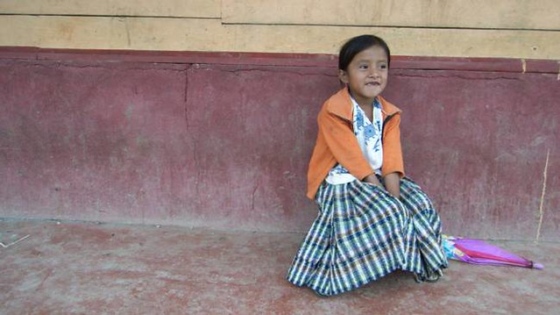
New Century, Old Disparities: Gender, Ethnicity, and Income Inequality in Latin America
Education remains the best means to address persistent income inequality based on gender and race in Latin America, argued Hugo Ñopo.
Education remains the best means to address persistent income inequality based on gender and race in Latin America, argued Hugo Ñopo.
Women form more than half the population, but constitute only a small minority of all political representatives. According to the most recent figures, they occupy 17 percent of all seats in national parliaments around the world (Inter-Parliamentary Union 2007b). However, attention to global averages masks important variations.
Within the changing landscape of migration where both men and women are moving across borders, remittance transfers also follow gendered lines. These dynamics are the differences in sex and social practices that signify the presence of prevailing relationships in the broader context of contemporary transnational migration (Ramirez 2005).
The Inter-American Development Bank (IDB) and the Women’s Leadership Conference of the Americas (WLCA)—a joint initiative of the Inter-American Dialogue and the International Center for Research on Women (ICRW)—are pleased to present this report on the discussions regarding women’s leadership that occurred at the meeting, “Politics Matter: A Dialogue of Women Political Leaders,” held on November 13, 2000 at IDB headquarters in Washington, DC. We are particularly grateful to the fifty top women politicians from throughout the hemisphere whose thoughtful participation made this forum a success.
The Women’s Leadership Conference of the Americas (WLCA)—a joint initiative of the Inter-American Dialogue and the International Center for Research on Women (ICRW)—is pleased to present this report on women in political power in the hemisphere. The WLCA believes that the number of women in political leadership is a concrete indicator of a country’s progress (or lack thereof) toward fulfilling its commitment to women’s equity. The WLCA is releasing this report prior to the third Summit of the Americas––taking place in Quebec City, Canada, on April 20 to 22, 2001––as part of its continuing efforts to monitor progress on promises made to women.
This paper highlights the achievements and the failures of American governments in implementing Summit provisions related to women’s rights in the areas of violence, health, political participation, legal rights, and the maintenance of women’s agencies in the state.
On October 7, 1994 in Washington, D.C., the Roundtable of Western Hemisphere Women Leaders brought together a politically and professionally diverse group of over thirty prominent women—none of whom occupy a national government position—from the United States, Canada and eleven countries of Latin America and the Caribbean.
The Women’s Leadership Conference of the Americas (WLCA) is a hemispheric network of 100 outstanding women leaders who have decided to work together to: (1) expand the number and enhance the contribution of women in top leadership positions across Latin America and the Caribbean; (2) promote policy and institutional changes that will improve opportunities for all women in the region; and (3) strengthen other nongovernmental initiatives that advance women’s equality, and facilitate their access to policy officials.
A brave whistleblower recently reported that women immigrants at an Immigration and Customs Enforcement (ICE) detention center have been subjected to gynecological procedures without their knowledge or informed consent. Unfortunately, for thousands of women and girls, these reported violations are just a sampling of the government’s illegal practices of aggression and neglect in its treatment of women seeking to immigrate to the United States.
Two Dialogue members, Laura Chinchilla and Sylvia Escovar, were named “Women of the Decade” at the 2020 Women Economic Forum (WEF) for Latin America. The WEF focuses on the role of women in the global economy, and this year’s virtual conference took place on November 6 and 7, 2020.
On December 3, the Dialogue partnered with the Victory Institute to host the event “LGBTQ Rights and US Foreign Policy: A Need to Lead” as part of the 2020 International LGBTQ Leaders Conference.
Dialogue members Susana Malcorra and Rebeca Grynspan are participating in a thought leadership series titled “Women’s Voices for an Equal Future.” The series is organized by the United Nations System Staff College (UNSSC) and the Group of Women Leaders Voices for Change and Inclusion (GWL-Voices).
On February 25, 2021, the Inter-American Dialogue hosted the webinar “The Road to Legal Abortion in Argentina” in partnership with the Embassy of Argentina in Washington, DC, and the International Planned Parenthood Federation Western Hemisphere Region (IPPFWHR). Panelists discussed the winning strategy employed by the feminist movement to promote passage of the law to legalize abortion, the challenges they encountered, and how they leveraged resources to produce a favorable outcome.
Amidst stark regression of reproductive rights in the Global North, the Inter-American Dialogue, in partnership with the Center for Reproductive Rights, Fòs Feminista, and the Embassy of Argentina in the United States, hosted a symposium titled “Faces of the Latin American Green Wave: From Argentina to Mexico, Leaders Share Their Experiences” on October 27, 2022.
On the heels of President Guillermo Lasso’s White House meeting with President Joe Biden on December 19, 2022, President Lasso joined Inter-American Dialogue President & CEO Rebecca Bill Chavez for a conversation about the US-Ecuador bilateral relationship.
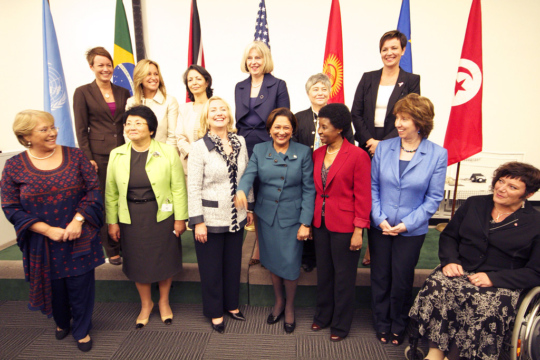
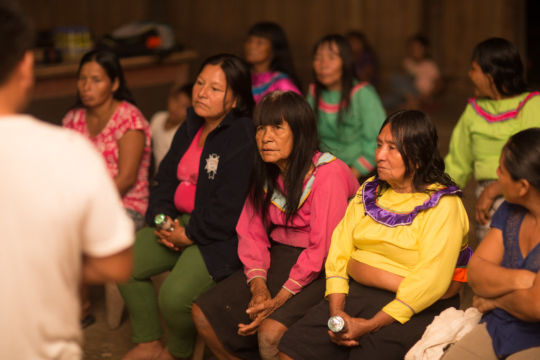
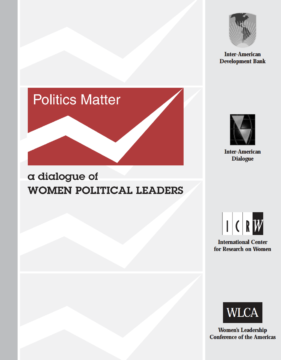
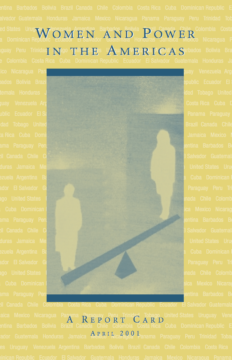
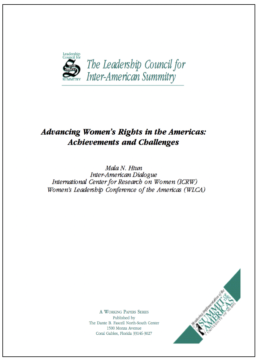
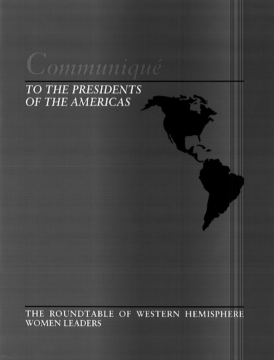
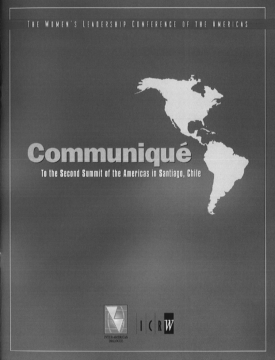
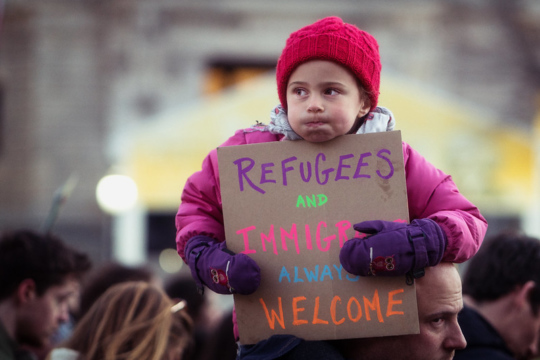
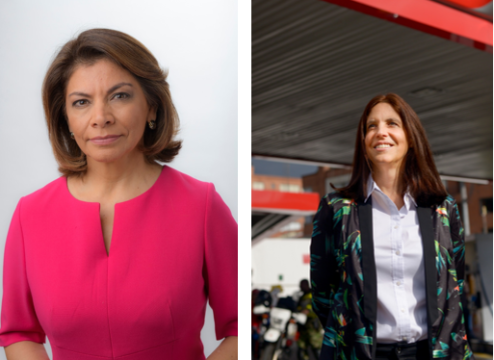
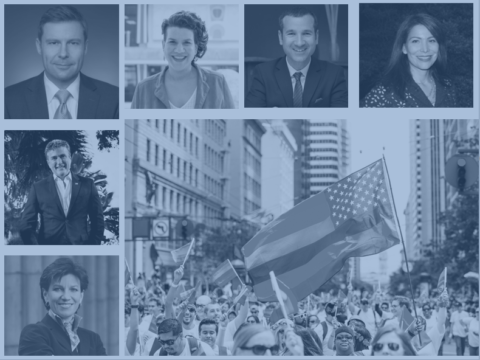 Video
Video
 Video
Video
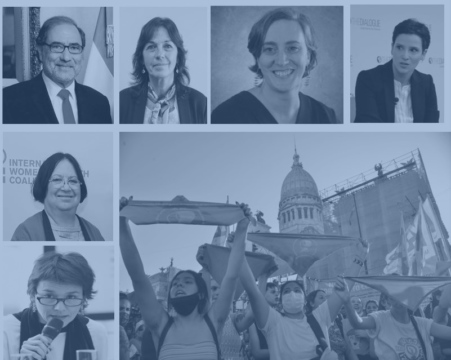 Video
Video
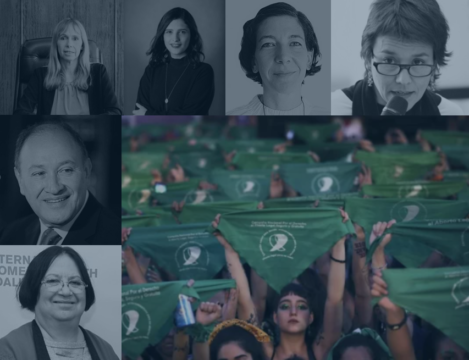 Video
Video
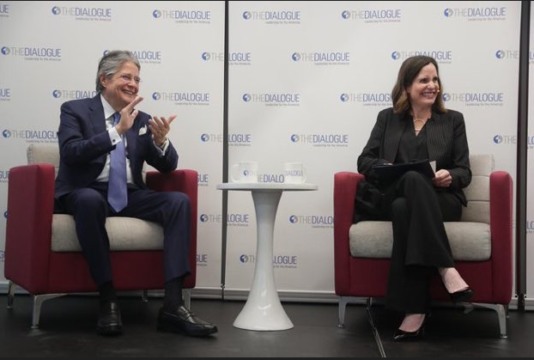 Video
Video